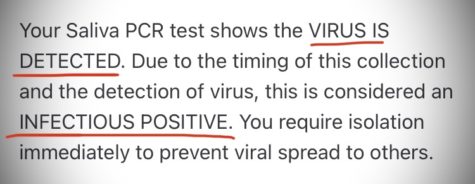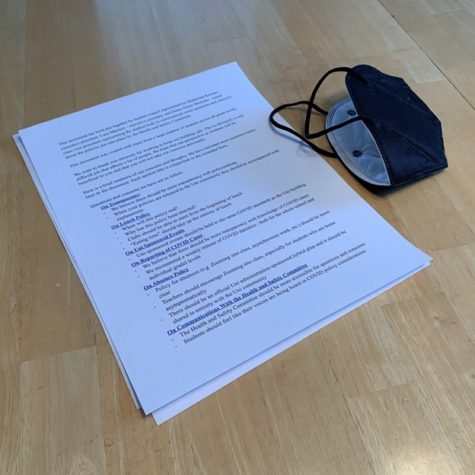Testing during remote learning
Most classes aren’t conducting testing during online school, and teachers that are have had to alter their tests to varying degrees. Testing is a cause of stress, but some tests are less stressful and more suited to online learning than others. Assessment may be especially important during online school because teachers have less guarantee that students are paying attention like they would in in-person class.
Sophomore Theodore Kemna said that in his Latin class, students print out their tests and complete them off of Zoom. According to Theodore, “Everyone was generally positive about it since it’s pretty much the way we do it in class.”
Not every class is so easily transferable to online learning.
In regards to the Sophomore modern history class he teaches, Chris Butler said, “I’ve had to switch from giving flowcharts to essays because there’s no way on Compass they could draw a flowchart.” Butler adds that one advantage of giving tests online is that “everybody’s typing their answers so I can read things better, which is a big deal for teachers.”
Junior Rithika Patnam explained that students in accelerated calculus are also receiving tests through Compass, but unlike Mr. Butler’s tests, the math tests are completed on paper and then submitted as images. Completing the test on paper is especially useful for math since it is difficult to type out equations. Patnam said, “They’re the same [as in-person math tests] in that you’re still just writing it down on paper, but you just lose a lot of valuable time uploading them.”
Every teacher and student interviewed agrees that one significant difficulty with online testing is the lack of monitoring. Even when on camera, it is much easier for students to cheat during online tests than traditional in person tests. Teachers understand this issue and have altered their tests accordingly. For example, some math tests are now open book, which reduces the amount of cheating because the test is designed for students to look up information. Patnam agrees that cheating is a bigger issue in online school: “I think that with things like math you need to know how to do it, but if there are things that are just memorization, then everyone’s gonna cheat.”
Some subjects aren’t suited to open book tests, but there are other ways to change tests that may be beneficial. Butler thinks that long answer questions might reduce cheating because “if you have to write an essay, it’s harder to just text someone the answer.” Not only do long answer questions potentially reduce cheating, but some students also prefer them to short answer or multiple choice questions. Theodore Kemna says, “Long answer questions are less stressful because rather than memorizing facts, which are easy to forget, you just need to understand a general concept.”
With classes only meeting twice a week, teachers have less time with students. During online class, it is also harder for some students to absorb information. Butler agrees with this, saying, “My guess is that students are absorbing less now, especially if they’re off camera; You know, they may be in their room taking a nap and setting an alarm for when class is over.”
With students covering less content during class, teachers are forced to either remove material or assign it as homework. Students would prefer if tests were made easier to reflect the learning done in class, but some classes might require more studying to cover all the usual content of the course. Butler has tried to reduce student workload by using the Wednesdays before tests as review periods. Still, he hasn’t been able to cover all the content covered in in-person classes, mentioning, “I’ve eliminated an entire unit on exploration just because of the time limits.”
The downside to making up for reduced class time with more studying is that it adds to the already overwhelming (for some students) workload. Stress is almost unavoidable when it comes to tests, so teachers have to decide whether the benefits of tests are worth the amount of stress. As mentioned before, not all tests are equal. Students have different preferences, but the students interviewed find that generous time limits, open notes, and long answer questions can make tests less stressful (although for some subjects, these might diminish tests’ effectiveness).
Online testing also brings up the issues of testing in general, namely whether it is really an effective method of measuring students’ knowledge. Kemna thinks, “they should try to find alternatives because this is not really a great environment to be doing tests.” Butler agrees that discussions and projects can be useful, “at least for some classes,” but explains that some classes are not suited for these alternatives. Ultimately, most students agree that when designed well, discussions, projects, papers, and tests can all be effective at measuring understanding without excessive stress.


